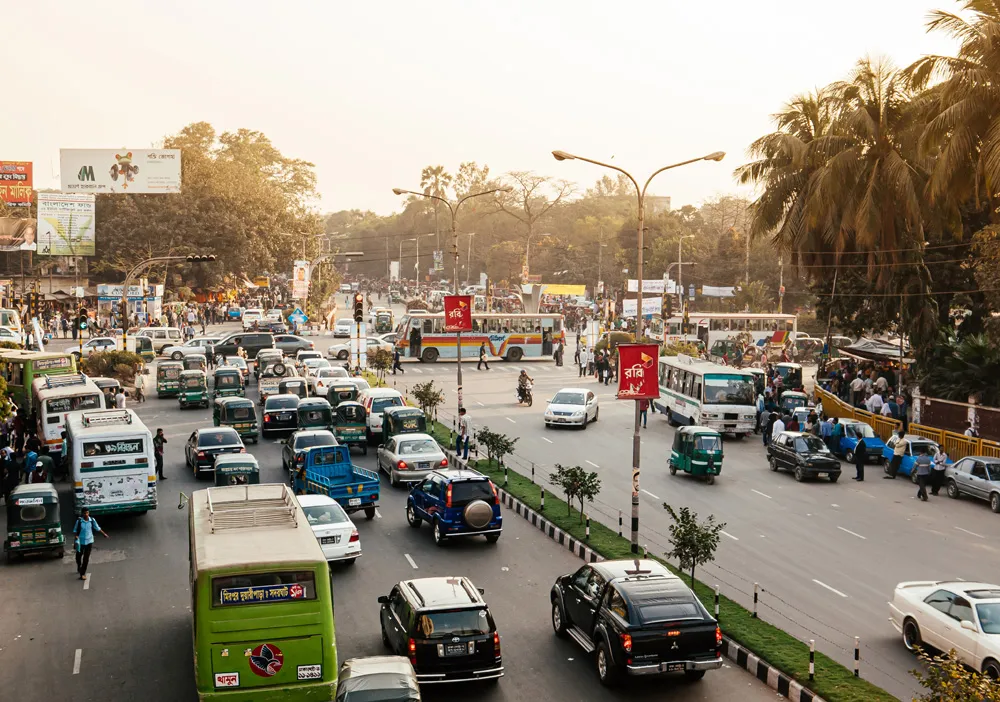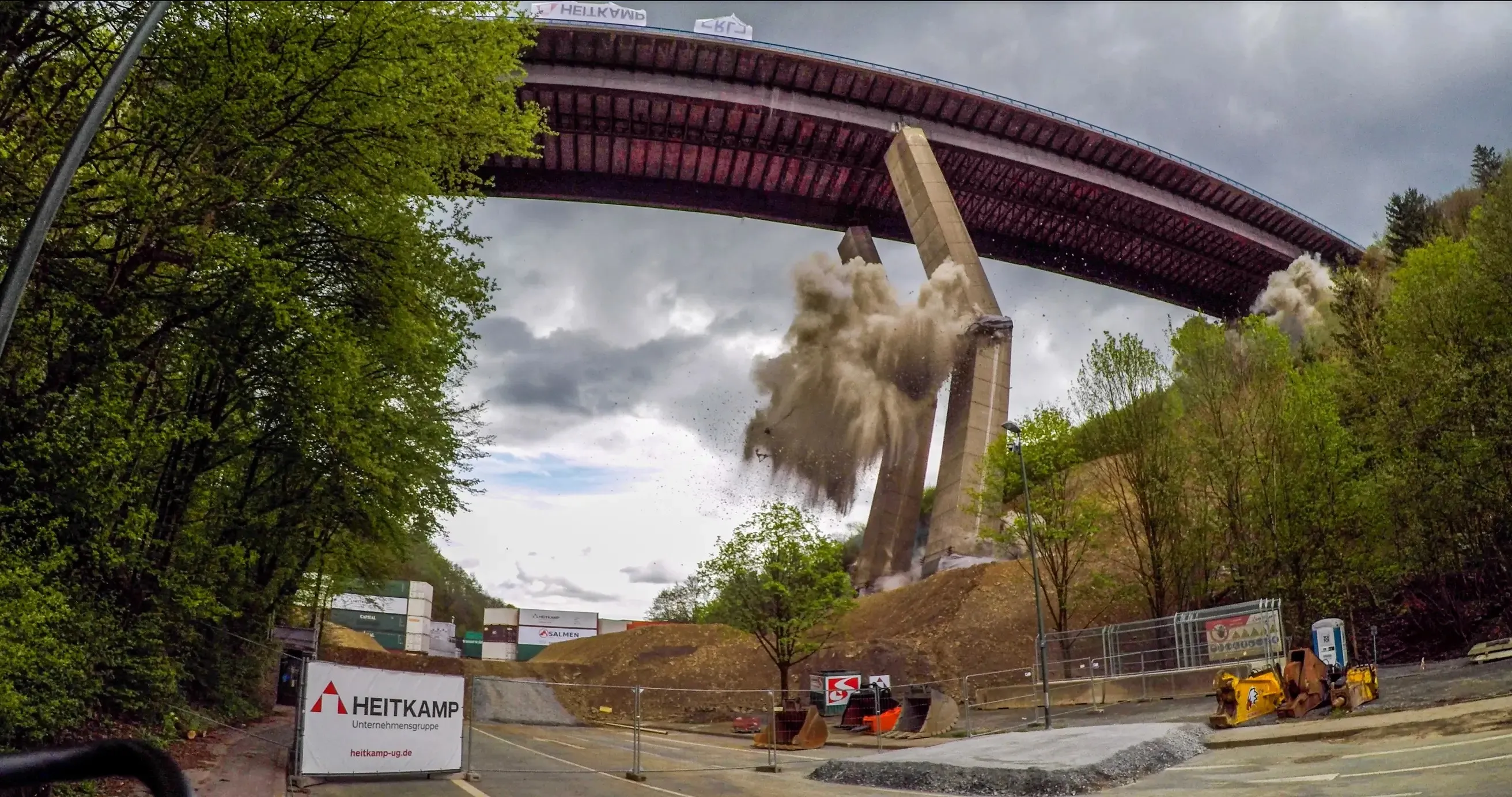Minsk is to benefit from a new ring road that will cut city congestion - Eugene Gerden reports
The government of Belarus is investing more than US$200 million in the building of a new ring road around the country’s capital Minsk, in accordance with a government decree. Implementation of the project is taking place as part of the existing large-scale state road building programme in the country until 2017, with the total cost estimated at US$5 billion.
The new road will measure some 85km long and will feat
May 23, 2014
Read time: 5 mins
Minsk is to benefit from a new ring road that will cut city congestion - Eugene Gerden reports
The government of Belarus is investing more than US$200 million in the building of a new ring road around the country’s capital Minsk, in accordance with a government decree. Implementation of the project is taking place as part of the existing large-scale state road building programme in the country until 2017, with the total cost estimated at US$5 billion.
The new road will measure some 85km long and will feature four lanes in all, with two in each direction and the route is being designed for a maximum speed of 120km/h.
All the construction work is expected to be carried out in two stages. The first stage involves building the road section from the existing M3 Minsk - Vitebsk highway to the M6/E28 link connecting capital Minsk to the border with neighbouring Poland, which will measure 44km long.
Meanwhile the second stage involves the construction of the 41km section of road connecting the M6/E28 highway that joins Minsk with the Polish border to the M1/E30 route between Brest and the border with Russia.
The project is being carried out by the state-run public corporation7755 Belgiprodor, one of the country’s largest engineering enterprises, which is headed by the country’s president Alexander Lukashenko. He has said the work is needed as the existing ring road can no longer deal with the recent increases in traffic volume and that there is now an acute need to build a relief road.
The new road will initially carry some 10,000 cars/day according to estimates, and traffic volumes are expected to grow significantly over the next few years.
Alexander Lukashenko said, "Building the new road is very important for Minsk and the whole country,” and he explained that traffic volumes have increased enormously in recent years. He continued, “There is the ever growing transit flowing through Belarus in the East-West direction. There, transit flows are expected to be significantly increased during coming years and will go through Minsk. In addition, building of a second ring will have a positive impact on the environmental situation in the city.”
According to Anatoly Sivak, the Minister of Transport and Communications of Belarus, the construction of the new road has already been started and is expected to be completed by 2017. It is planned that the first 20km of the road will be commissioned before the end of the current year. Most of the funds for the project are expected to be allocated from the state budget of Belarus, a state fund of national development, as well as the state fund, which is formed by road charges.
The cost of building of the new road will be $3 million/km, which is several times lower than in neighboring Russia, where the cost of road building is one of the highest in the world. In the meantime, despite numerous advantages the project has already been criticised by some local groups. There are concerns over the need to demolish entire villages, which are located on the route of the new road.
These statements have already become known in the Belarus Government, the official representative of which has already assured Minsk citizens that building of the new road will not be associated with the demolition of private houses.
According to an official representative of the Belarus Ministry of Transport, the new road will bypass residential districts. In addition, the road will not affect the borders of natural reserves and sites of historical value. Mikhail Myasnikovich, prime minister of Belarus, said that building the road is part of an ambitious road building programme for Belarus. This has resulted in the construction of 344km of roads in the country for the last three years. He has also added that this year another 104km of new roads will be built.
According to Eugene Rockalo, deputy head of department of road network maintenance of Belavtodor, Belarus’ leading state corporation in the field of road building, in addition to the ring road, among the other priorities of the Belarusian government in the field of road building this year will be modernisation of the Minsk -Grodno and Minsk- Vitebsk highways, as well as the Belarusian section of the Odessa - St. Petersburg highway.
At the same time last year Belavtodor completed the reconstruction of the Minsk- Mogilev highway. In accordance with the
plans of the Belarusian government in the coming years, the majority of roads in the country will be tolled.
Overall, according to Andrei Kobyakov, head of presidential administration, by 2017 some $5 billion will be invested in building new roads in the country.
He has also added, according to state plans, the financing will be allocated from numerous sources, including private funding sources. Kobyakov said that since 2008 the country has experienced a shortage of funds for road building, due to economic pressures on the country. In addition, until 2008 the country had its own Road State Fund, which was formed from the proceeds of taxation of legal entities and state revenue from the excise duty on petroleum products, however the fund ceased to exist in 2008.
It is planned that this time, in addition to state funds, funding of the project will take place through the loans of Belarusian and foreign banks, in particular Chinese. The biggest credit line for the project looks likely to be provided by the Chinese Eximbank and will reach $3.5 billion. According to Ivan Scherbo, in the next three years Belarus plans to reconstruct the entire road network to European standards.
According to Belarus Ministry of Transport and Communications, the overall length of the country’s road network is estimated at more than 86,000km. This network accounts for the majority of freight and passenger traffic in the country.
The government of Belarus is investing more than US$200 million in the building of a new ring road around the country’s capital Minsk, in accordance with a government decree. Implementation of the project is taking place as part of the existing large-scale state road building programme in the country until 2017, with the total cost estimated at US$5 billion.
The new road will measure some 85km long and will feature four lanes in all, with two in each direction and the route is being designed for a maximum speed of 120km/h.
All the construction work is expected to be carried out in two stages. The first stage involves building the road section from the existing M3 Minsk - Vitebsk highway to the M6/E28 link connecting capital Minsk to the border with neighbouring Poland, which will measure 44km long.
Meanwhile the second stage involves the construction of the 41km section of road connecting the M6/E28 highway that joins Minsk with the Polish border to the M1/E30 route between Brest and the border with Russia.
The project is being carried out by the state-run public corporation
The new road will initially carry some 10,000 cars/day according to estimates, and traffic volumes are expected to grow significantly over the next few years.
Alexander Lukashenko said, "Building the new road is very important for Minsk and the whole country,” and he explained that traffic volumes have increased enormously in recent years. He continued, “There is the ever growing transit flowing through Belarus in the East-West direction. There, transit flows are expected to be significantly increased during coming years and will go through Minsk. In addition, building of a second ring will have a positive impact on the environmental situation in the city.”
According to Anatoly Sivak, the Minister of Transport and Communications of Belarus, the construction of the new road has already been started and is expected to be completed by 2017. It is planned that the first 20km of the road will be commissioned before the end of the current year. Most of the funds for the project are expected to be allocated from the state budget of Belarus, a state fund of national development, as well as the state fund, which is formed by road charges.
The cost of building of the new road will be $3 million/km, which is several times lower than in neighboring Russia, where the cost of road building is one of the highest in the world. In the meantime, despite numerous advantages the project has already been criticised by some local groups. There are concerns over the need to demolish entire villages, which are located on the route of the new road.
These statements have already become known in the Belarus Government, the official representative of which has already assured Minsk citizens that building of the new road will not be associated with the demolition of private houses.
According to an official representative of the Belarus Ministry of Transport, the new road will bypass residential districts. In addition, the road will not affect the borders of natural reserves and sites of historical value. Mikhail Myasnikovich, prime minister of Belarus, said that building the road is part of an ambitious road building programme for Belarus. This has resulted in the construction of 344km of roads in the country for the last three years. He has also added that this year another 104km of new roads will be built.
According to Eugene Rockalo, deputy head of department of road network maintenance of Belavtodor, Belarus’ leading state corporation in the field of road building, in addition to the ring road, among the other priorities of the Belarusian government in the field of road building this year will be modernisation of the Minsk -Grodno and Minsk- Vitebsk highways, as well as the Belarusian section of the Odessa - St. Petersburg highway.
At the same time last year Belavtodor completed the reconstruction of the Minsk- Mogilev highway. In accordance with the
plans of the Belarusian government in the coming years, the majority of roads in the country will be tolled.
Overall, according to Andrei Kobyakov, head of presidential administration, by 2017 some $5 billion will be invested in building new roads in the country.
He has also added, according to state plans, the financing will be allocated from numerous sources, including private funding sources. Kobyakov said that since 2008 the country has experienced a shortage of funds for road building, due to economic pressures on the country. In addition, until 2008 the country had its own Road State Fund, which was formed from the proceeds of taxation of legal entities and state revenue from the excise duty on petroleum products, however the fund ceased to exist in 2008.
It is planned that this time, in addition to state funds, funding of the project will take place through the loans of Belarusian and foreign banks, in particular Chinese. The biggest credit line for the project looks likely to be provided by the Chinese Eximbank and will reach $3.5 billion. According to Ivan Scherbo, in the next three years Belarus plans to reconstruct the entire road network to European standards.
According to Belarus Ministry of Transport and Communications, the overall length of the country’s road network is estimated at more than 86,000km. This network accounts for the majority of freight and passenger traffic in the country.







